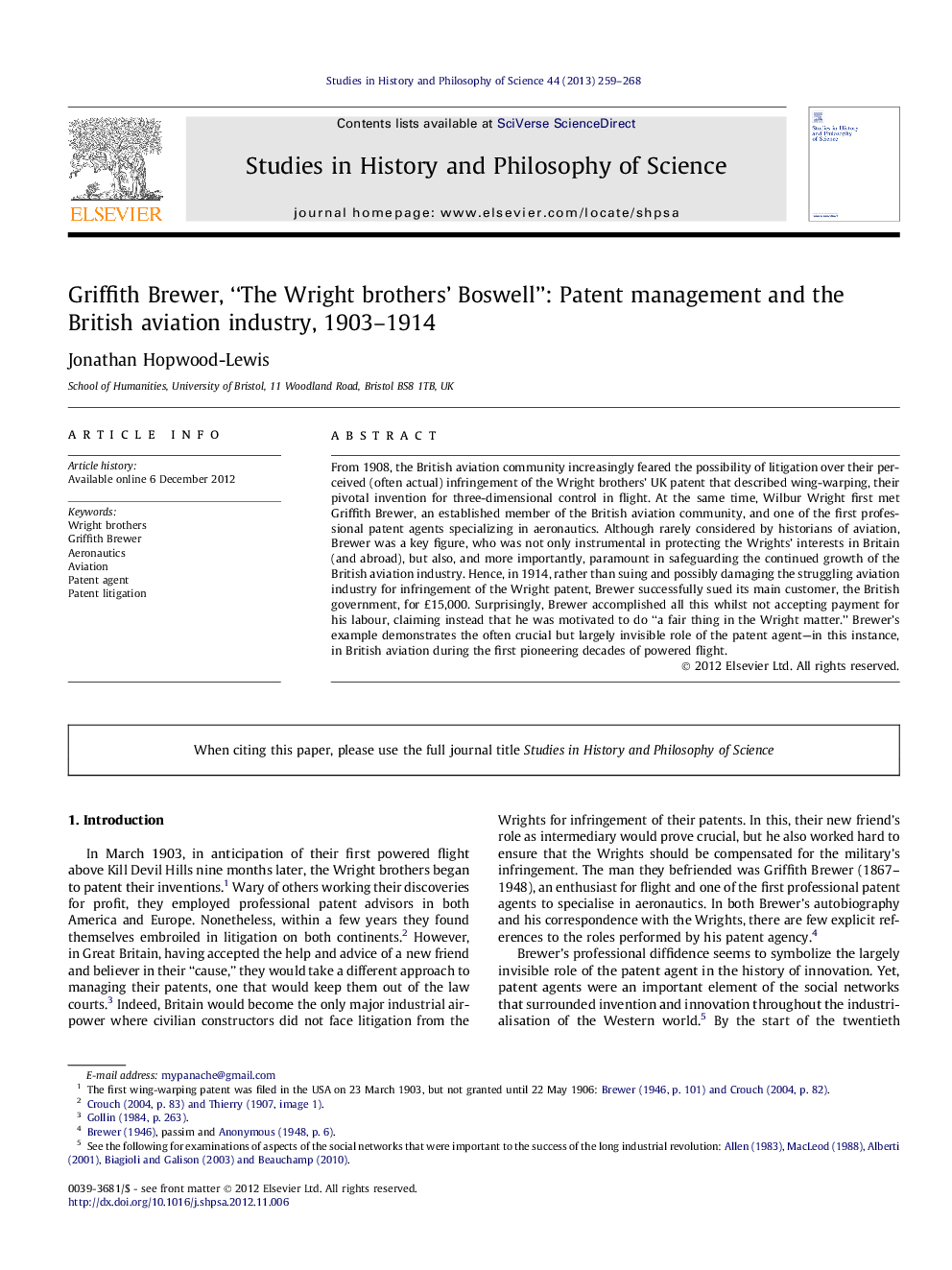| Article ID | Journal | Published Year | Pages | File Type |
|---|---|---|---|---|
| 1160251 | Studies in History and Philosophy of Science Part A | 2013 | 10 Pages |
From 1908, the British aviation community increasingly feared the possibility of litigation over their perceived (often actual) infringement of the Wright brothers’ UK patent that described wing-warping, their pivotal invention for three-dimensional control in flight. At the same time, Wilbur Wright first met Griffith Brewer, an established member of the British aviation community, and one of the first professional patent agents specializing in aeronautics. Although rarely considered by historians of aviation, Brewer was a key figure, who was not only instrumental in protecting the Wrights’ interests in Britain (and abroad), but also, and more importantly, paramount in safeguarding the continued growth of the British aviation industry. Hence, in 1914, rather than suing and possibly damaging the struggling aviation industry for infringement of the Wright patent, Brewer successfully sued its main customer, the British government, for £15,000. Surprisingly, Brewer accomplished all this whilst not accepting payment for his labour, claiming instead that he was motivated to do “a fair thing in the Wright matter.” Brewer’s example demonstrates the often crucial but largely invisible role of the patent agent—in this instance, in British aviation during the first pioneering decades of powered flight.
► The Wright brothers had a British patent agent to directly manage their UK patents. ► Their British patent agent was Griffith Brewer, who gave his services gratis. ► In 1914, Brewer successfully sued his government for £15,000 for infringement. ► Brewer used his position to support the Wrights and the British aviation industry. ► Brewer gained higher revenues via deterrence than by litigation (as used overseas).
